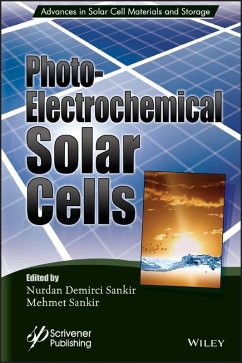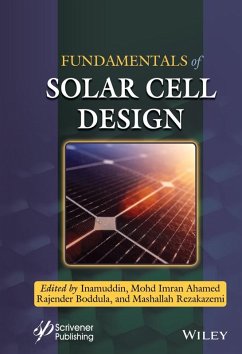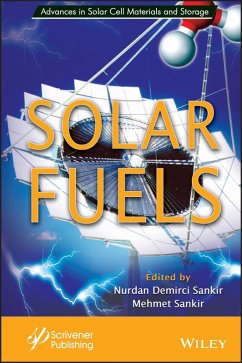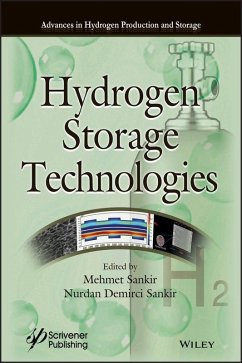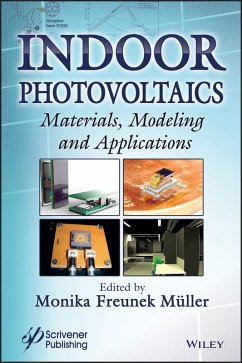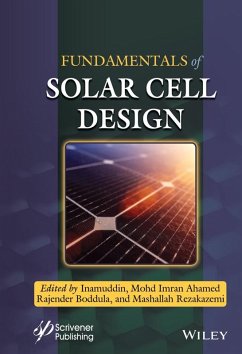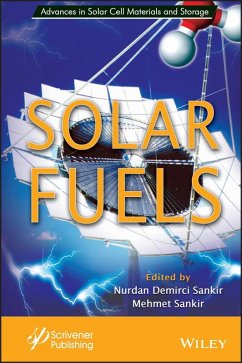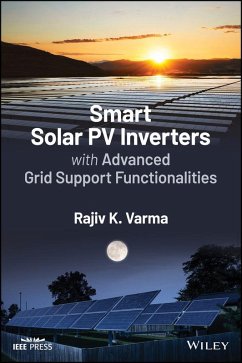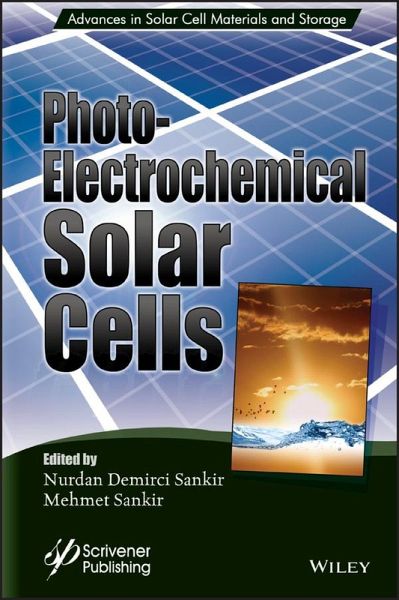
Photoelectrochemical Solar Cells (eBook, ePUB)
Versandkostenfrei!
Sofort per Download lieferbar
197,99 €
inkl. MwSt.
Weitere Ausgaben:

PAYBACK Punkte
0 °P sammeln!
This book provides a broad overall view of the photoelectrochemical systems for solar hydrogen generation, and new and novel materials for photoelectrochemical solar cell applications. Hydrogen has a huge potential as a safe and efficient energy carrier, which can be used directly in fuel cells to obtain electricity, or it can be used in the chemical industry, fossil fuel processing or ammonia production. However, hydrogen is not freely available in nature and it needs to be produced. Photoelectrochemical solar cells produce hydrogen from water using sunlight and specialized semiconductors, wh...
This book provides a broad overall view of the photoelectrochemical systems for solar hydrogen generation, and new and novel materials for photoelectrochemical solar cell applications. Hydrogen has a huge potential as a safe and efficient energy carrier, which can be used directly in fuel cells to obtain electricity, or it can be used in the chemical industry, fossil fuel processing or ammonia production. However, hydrogen is not freely available in nature and it needs to be produced. Photoelectrochemical solar cells produce hydrogen from water using sunlight and specialized semiconductors, which use solar energy to directly dissociate water molecules into hydrogen and oxygen. Hence, these systems reduce fossil fuels dependency and curb carbon dioxide emissions. Photoelectrochemical Solar Cells compiles the objectives related to the new semiconductor materials and manufacturing techniques for solar hydrogen generation. The chapters are written by distinguished authors who have extensive experience in their fields. Multidisciplinary contributors from physics, chemical engineering, materials science, and electrical and electronic information engineering, provide an in-depth coverage of the topic. Readers and users have the opportunity to learn not only about the fundamentals but also the various aspects of the materials science and manufacturing technologies for photoelectrochemical solar cells and the hydrogen generation systems via photoelectrochemical conversion. This groundbreaking book features: * Description of solar hydrogen generation via photoelectrochemical process * Designs of photoelectrochemical systems * Measurements and efficiency definition protocols for photoelectrochemical solar cells * Metal oxides for solar water splitting * Semiconductor photocatalysts * Bismuth vanadate-based materials for solar water splitting * Copper-based chalcopyrite and kesterite materials for solar water splitting * Eutectic composites for solar water splitting * Photocatalytic formation of composite electrodes
Dieser Download kann aus rechtlichen Gründen nur mit Rechnungsadresse in A, B, BG, CY, CZ, D, DK, EW, E, FIN, F, GR, HR, H, IRL, I, LT, L, LR, M, NL, PL, P, R, S, SLO, SK ausgeliefert werden.




